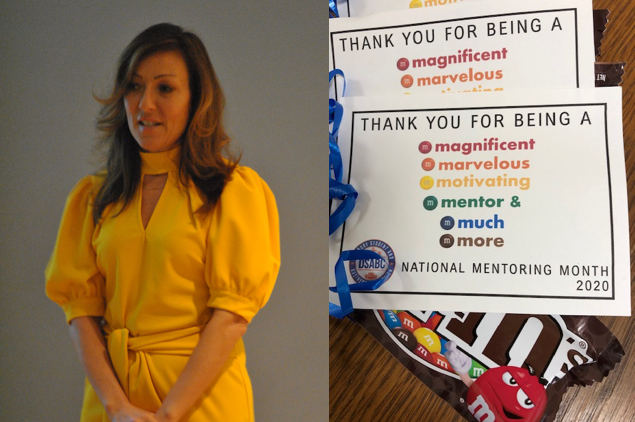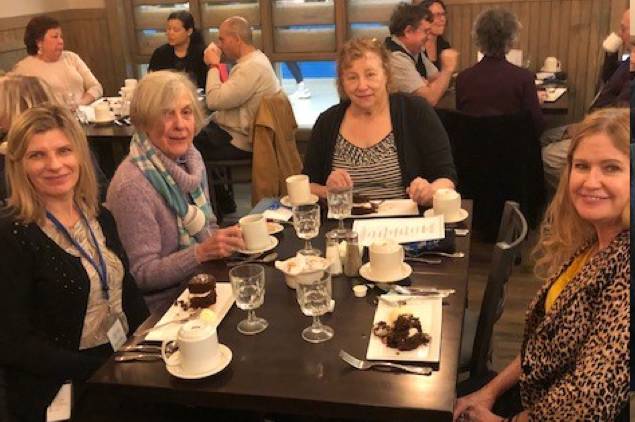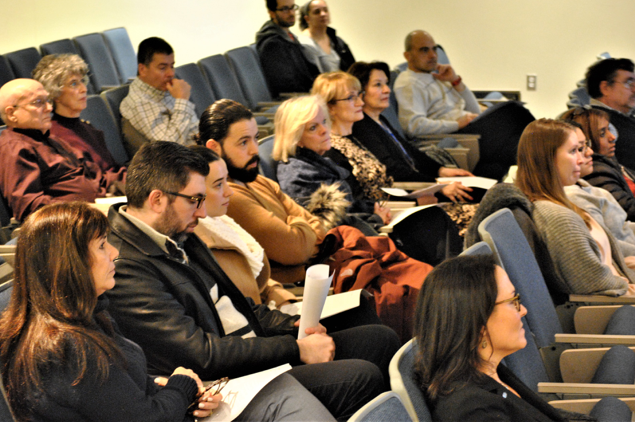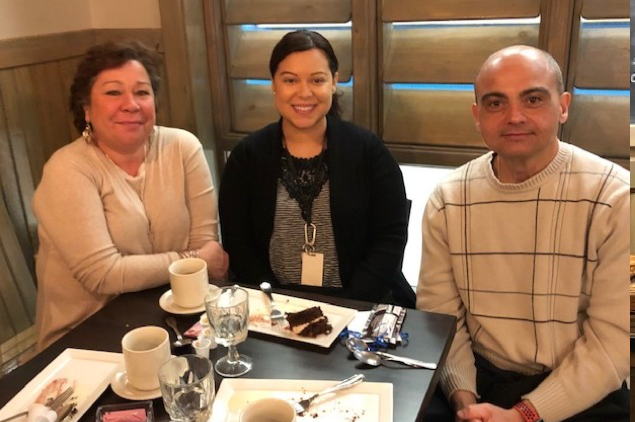DSABC Mentor Luncheon Focuses on Resiliency
January 27, 2020
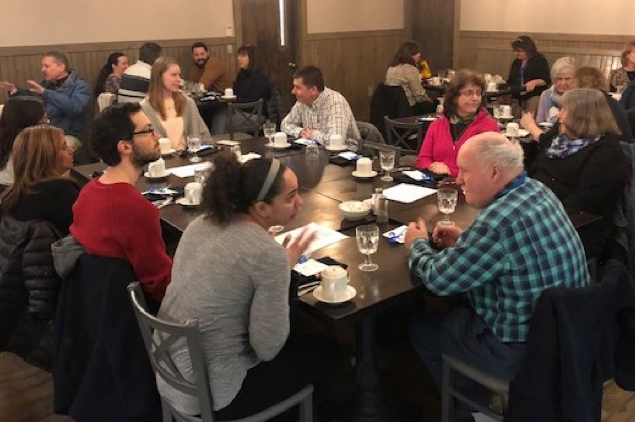
Today’s students are often under a lot of pressure for which they aren’t always prepared to cope. From getting on a school bus to taking an important test, these events can serve as anxiety triggers depending on the student and past traumatic experiences.
At the annual Danbury Student and Business Connection (DSABC) annual mentor luncheon held Jan. 27 at Henry Abbott Technical High School in Danbury, DSABC mentors learned about signs of resiliency and how to recognize when a student is reacting from trauma and how to get help. Lunch was prepared and served by students in Abbott Tech’s culinary program and served in the newly renovated Thyme Café.
Keynote speaker Elizabeth Cotter, clinical director at Danbury Youth Services, a non-profit agency that provides services to 400 youths annually including a variety of intervention/prevention and positive youth development programs, said that trauma affects everyone differently. Some people become stronger from trauma, while it presents complications for others.
“The most important thing is to be there for them,” Cotter said. “You don’t need to always give advice – just listen. It says that, in this moment, I am here for you. It shows you how therapeutic this relationship is.”
Cotter said that DSABC is one of the best mentoring programs she’s seen: “You have the most invested mentors.”
Explaining that trauma can cause changes in the brain and result in social, emotional and cognitive impairment, Cotter said that multiple traumatic experiences raise the risk of negative manifestations, including substance abuse and obesity.
“This is a chance to change things. Damage from trauma is hard to fix but not impossible,” Cotter said. Mentors, she added, are an extra layer in the system and those healthy interactions play a huge role in helping students overcome adversity.
The “7 C’s of Resilience” were outlined as part of how mentors can help students: competence, confidence, connection, character, contribution, coping and control. For instance, mentors can help just by showing up, providing a connection that increases a student’s sense of belonging. Providing a sense of right and wrong and showing a commitment to integrity helps students develop integrity.
“These relationships help foster resiliency,” Cotter said. “Kids live ‘up’ or ‘down’ to our expectations.” She encouraged mentors to be positive and focus on listening.
Although signs that a child is experiencing trauma or has been negatively impacted by past events can vary, Cotter said to look for a fight or flight response in younger children or behavior that seems as though they are shutting down. Unresponsive children or children who appear to be daydreaming or not listening may appear to be disrespectful, but it may be they simply can’t process what’s happening because they are suffering the effects of trauma.
Adolescents, on the other hand, can exhibit self-injurious behaviors, lack of attachment, school avoidance, substance use, eating disorders, suicidal ideation and the inability to distinguish danger cues.
“That’s what you help them with,” Cotter said, “to teach them about healthy boundaries and relationships. A kid who is saying it is a kid we can help. That saves lives.”
At the annual Danbury Student and Business Connection (DSABC) annual mentor luncheon held Jan. 27 at Henry Abbott Technical High School in Danbury, DSABC mentors learned about signs of resiliency and how to recognize when a student is reacting from trauma and how to get help. Lunch was prepared and served by students in Abbott Tech’s culinary program and served in the newly renovated Thyme Café.
Keynote speaker Elizabeth Cotter, clinical director at Danbury Youth Services, a non-profit agency that provides services to 400 youths annually including a variety of intervention/prevention and positive youth development programs, said that trauma affects everyone differently. Some people become stronger from trauma, while it presents complications for others.
“The most important thing is to be there for them,” Cotter said. “You don’t need to always give advice – just listen. It says that, in this moment, I am here for you. It shows you how therapeutic this relationship is.”
Cotter said that DSABC is one of the best mentoring programs she’s seen: “You have the most invested mentors.”
Explaining that trauma can cause changes in the brain and result in social, emotional and cognitive impairment, Cotter said that multiple traumatic experiences raise the risk of negative manifestations, including substance abuse and obesity.
“This is a chance to change things. Damage from trauma is hard to fix but not impossible,” Cotter said. Mentors, she added, are an extra layer in the system and those healthy interactions play a huge role in helping students overcome adversity.
The “7 C’s of Resilience” were outlined as part of how mentors can help students: competence, confidence, connection, character, contribution, coping and control. For instance, mentors can help just by showing up, providing a connection that increases a student’s sense of belonging. Providing a sense of right and wrong and showing a commitment to integrity helps students develop integrity.
“These relationships help foster resiliency,” Cotter said. “Kids live ‘up’ or ‘down’ to our expectations.” She encouraged mentors to be positive and focus on listening.
Although signs that a child is experiencing trauma or has been negatively impacted by past events can vary, Cotter said to look for a fight or flight response in younger children or behavior that seems as though they are shutting down. Unresponsive children or children who appear to be daydreaming or not listening may appear to be disrespectful, but it may be they simply can’t process what’s happening because they are suffering the effects of trauma.
Adolescents, on the other hand, can exhibit self-injurious behaviors, lack of attachment, school avoidance, substance use, eating disorders, suicidal ideation and the inability to distinguish danger cues.
“That’s what you help them with,” Cotter said, “to teach them about healthy boundaries and relationships. A kid who is saying it is a kid we can help. That saves lives.”
